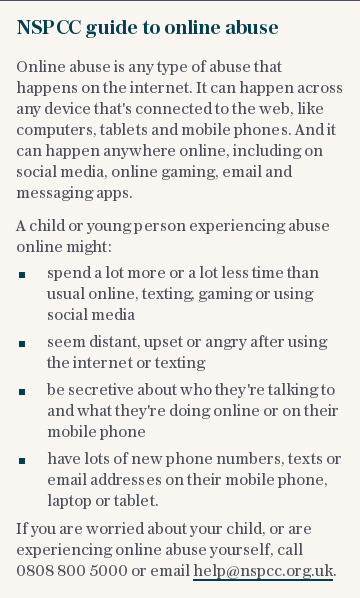Priti Patel accuses Facebook of putting profit before children's safety

- Oops!Something went wrong.Please try again later.
Priti Patel will on Monday accuse Facebook of putting profits before children’s safety, as she says tech giants have a “moral duty” to prevent abuse.
The Home Secretary will take the unusual step of singling out Facebook for its “unacceptable” plans to encrypt all messages, which she says will hamper law enforcement agencies’ ability to prevent “abhorrent” online child abuse.
She will tell a conference of industry and child protection experts that Facebook and other social media platforms need to start treating children’s online safety as seriously as they do selling advertising, phones and online games.
Her comments comes as the Government prepares to unveil its draft duty of care legislation to force social media platforms to do more to protect children from online harms including suicide, self-harm and bullying.
The Telegraph has campaigned for more than two years for the landmark legislation that will give the new internet regulator, Ofcom, the powers to impose multi-billion pound fines on social media giants that persistently fail to protect children from online harms.
Ms Patel fears Facebook’s encryption plans will not only enable child abusers to escape detection but will also allow terrorists and criminals to draw a cloak over their communications, putting lives at risk.
A senior source said Ms Patel wants to engage and collaborate with Facebook on its encryption plans to find an agreed solution but was prepared to take even tougher legislative measures to prevent any weakening in the safeguards for children. “All options remain on the table,” said a source.
Home Office analysts estimate Facebook’s plans will remove 12 million reports of child abuse to the National Centre for Missing and Exploited Children (NCMEC) every year, which lead to more than 2,500 arrests in the UK and 3,000 British children being safeguarded.
Facebook will still be able to identify suspect links between paedophiles and children but encryption means it will no longer be able to intercept and read their messages, so denying law enforcement agencies the vital evidence that they need to pursue offenders.
Police figures show Facebook-owned platforms which include Instagram and WhatsApp account for more than half of the 9,500 online sexual offences committed in the UK in the past year.
“Sadly, at a time when we need to be taking more action, Facebook is pursuing end-to-end encryption plans that place the good work and progress achieved so far in jeopardy,” Ms Patel will say.
“The offending will continue, the images of children being abused will proliferate – but the company intends to blind itself to this problem through end-to-end encryption which prevents all access to messaging content.
“This is not acceptable. We cannot allow a situation where law enforcement’s ability to tackle abhorrent criminal acts and protect victims is severely hampered. Simply removing accounts from a platform is nowhere near enough.”
Instead she will urge Facebook to “deepen their engagement with us to embed the safety of the public in their system designs. The safety and protection of our children depends on it.”
And she will say tech companies must “take the safety of children as seriously as they do the business of selling advertising, phones and online games,” stating that government, law enforcement and tech companies alike “have a moral duty to act.”
About 750,000 individuals are estimated worldwide to be looking to connect with children for sexual purposes online at any one time, she will say.
Monday's roundtable conference on encryption with government, industry and online safety experts has been organised by the NSPCC, who will publish polling showing 55 per cent of the public believe child safety is more important than online privacy.
The NSPCC will call for a “re-set” in what they claim has become a polarised debate over encryption. It wants Facebook to be more willing to “find a fix” to protect children in return for the Government and charities working with it to find a solution.

An NSPCC/YouGov survey found 33 per cent of 2,125 UK adults support using end-to-end encryption on social media and messaging services, but this jumps to 62 per cent if it is rolled out only if and when tech firms can ensure children's safety is protected.
The NSPCC says the Government’s current plans to combat encryption in its proposed duty of care laws do not go far enough in forcing the companies to maintain at least the same standard of protection and screening of messages as they do now.
The NSPCC wants the new law to shift the onus on to tech firms to show they are identifying and mitigating risks on products before they roll them out.
A Facebook spokesman said: “Child exploitation has no place on our platforms and Facebook will continue to lead the industry in developing new ways to prevent, detect and respond to abuse.
“End-to-end encryption is already the leading security technology used by many services to keep people safe from hackers and criminals. Its full rollout on our messaging services is a long-term project and we are building strong safety measures into our plans."

